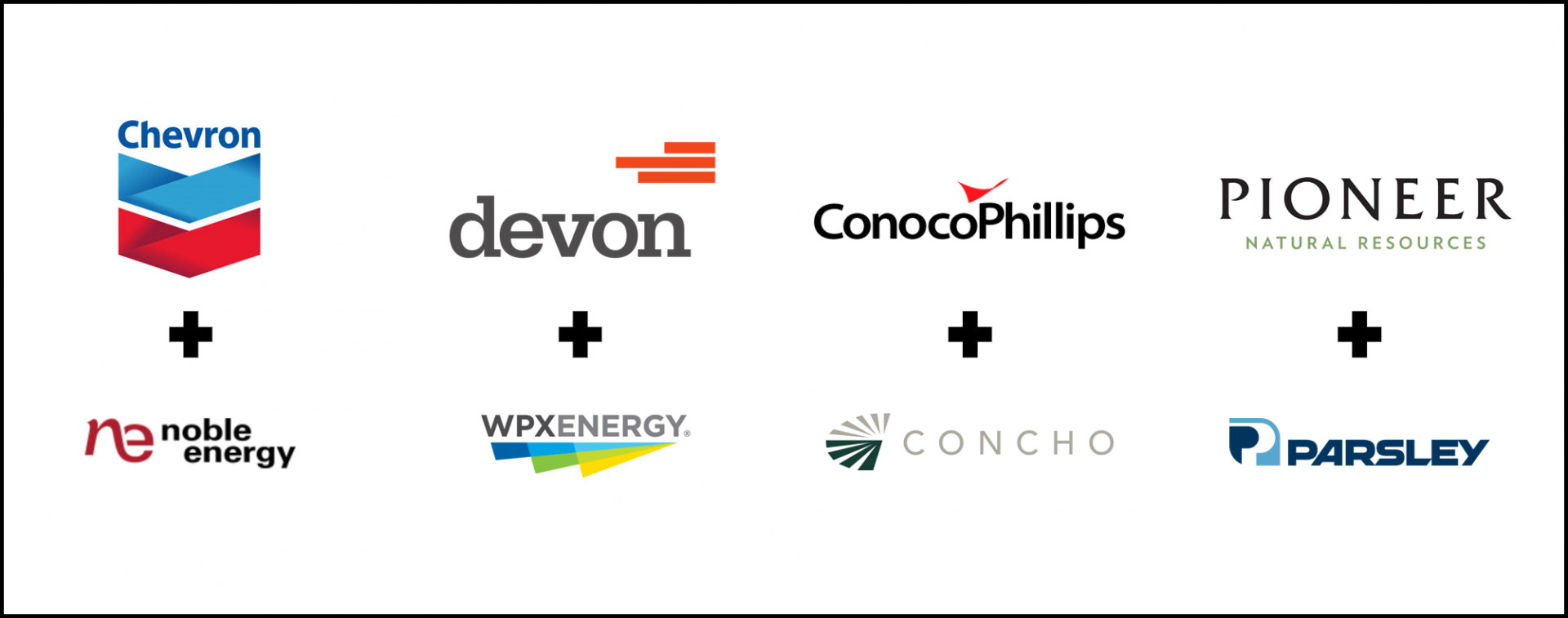Chevron-Noble. Devon-WPX. Conoco-Concho. Pioneer-Parsley. After years and years of discussions around consolidation in the industry, it’s finally happening. Shale operators are combining to build scale to weather this latest downturn.

The case for these mergers is strong, and truthfully, analysts have been calling for consolidation long before COVID-19 wreaked havoc on oil markets. The resulting larger companies will be able to drill more efficiently in contiguous acreage, reduce overhead costs, and negotiate better relationships with services companies. In short, greater scale should result in higher cashflows.
The resulting larger companies will be able to drill more efficiently in contiguous acreage, reduce overhead costs, and negotiate better relationships with services companies
But merger integrations are notoriously difficult. Companies without extensive integration experience often miss their synergy targets -- or take years to realize the savings -- while taking on significant merger-related capital costs. Poorly executed integrations can also result in loss of key talent and the dilution of strong, long-established cultures.
That’s why executives invest so much time, energy, and money in making sure everything goes smoothly. If you’ve ever been part of a large merger, you’re surely familiar with the army of consultants, bankers, and IT contractors that come on board for the process.
That’s why executives invest so much time, energy, and money in making sure everything goes smoothly. If you’ve ever been part of a large merger, you’re surely familiar with the army of consultants, bankers, and IT contractors that come on board for the process.
Don't forget about your field employees
One area that routinely gets overlooked, however, is field operations. Many executives these days see a merger as primarily an exercise in shoring up balance sheets, consolidating contracts, and managing G&A. In general, they leave the field alone. And we understand the caution! You don’t want to risk day-to-day operations, especially in an industry that deals with safety/environmental risks day-in and day-out.
But a small investment in the field during a merger can have a huge ROI. A poorly executed merger can have serious impacts in the field.
Consistency: With all the distractions managers face during a merger, you can lose consistency in operator performance and expectation. Without properly integrating field teams, companies often leave significant LOE savings on the table.
Culture: Morale in the field can go one of two dramatically different ways during a merger. The integration can either energize your frontline, or make them feel dejected. The latter case can result in the loss of key people. Or even worse, some operators may neglect their duties, resulting in expensive and dangerous incidents.
But a small investment in the field during a merger can have a huge ROI. A poorly executed merger can have serious impacts in the field.
Consistency: With all the distractions managers face during a merger, you can lose consistency in operator performance and expectation. Without properly integrating field teams, companies often leave significant LOE savings on the table.
Culture: Morale in the field can go one of two dramatically different ways during a merger. The integration can either energize your frontline, or make them feel dejected. The latter case can result in the loss of key people. Or even worse, some operators may neglect their duties, resulting in expensive and dangerous incidents.
A small investment in training can go a long way in the field
Digital training can drive consistent performance across the new company. An online platform can easily be customized to communicate information to all operators. Will some operators have to learn to operate new valves or compressors? Are there new SOPs everyone will need to learn? Online platforms can easily disseminate information and track competence
Training, if done right, is also a good way to show operators that the new company is committed to investing in them. It can make them feel like professionals (which they are) and a part of a unified team. Beyond just maintaining a culture, companies can use an integration as an opportunity to further strengthen it, and instill a focus on continuous learning and improvement. In a down market, having an engaged workforce is critical, as it will let you easily upskill your talent to meet business needs.

